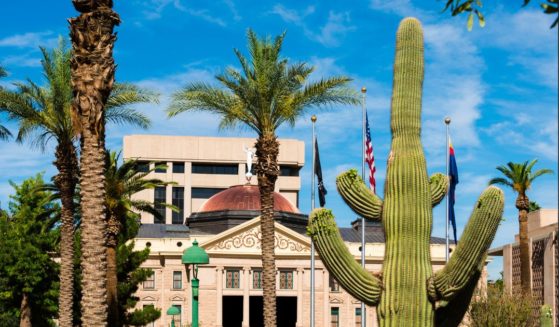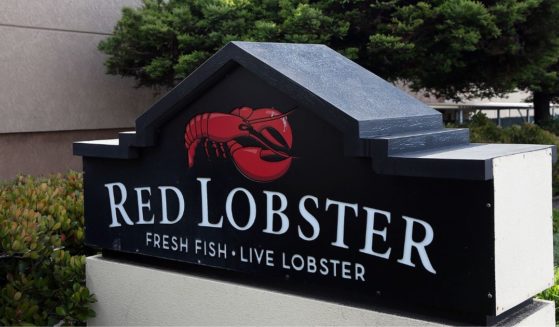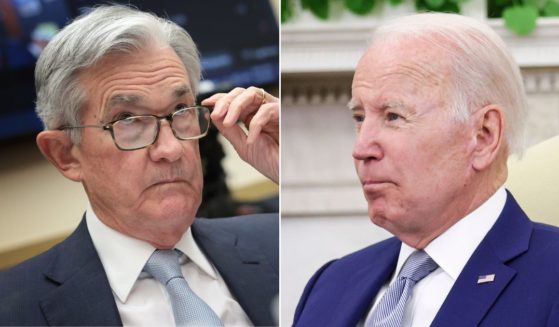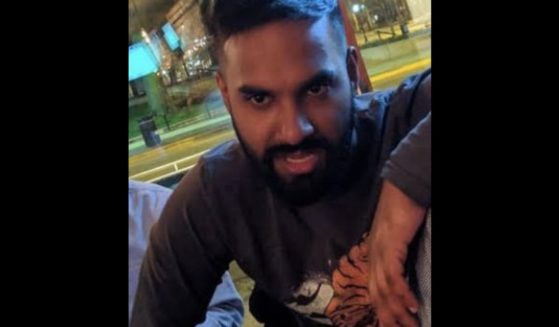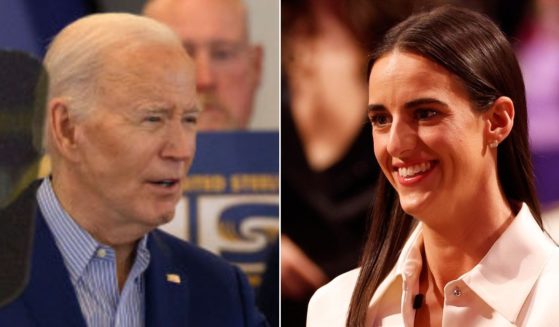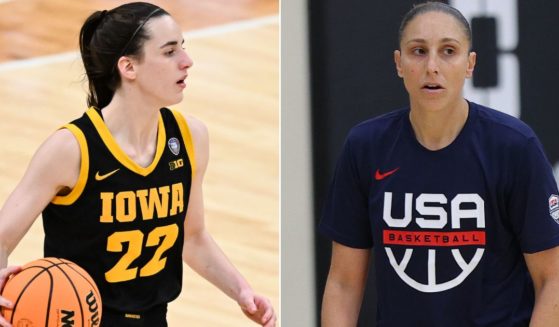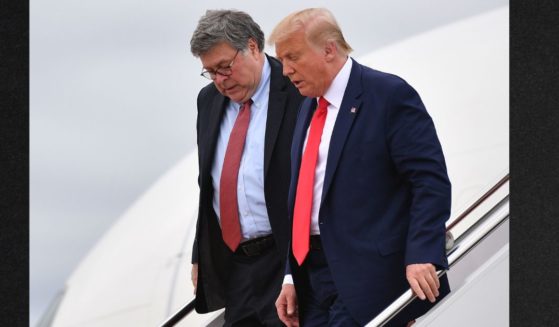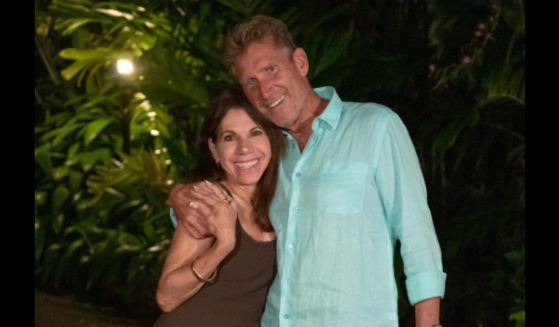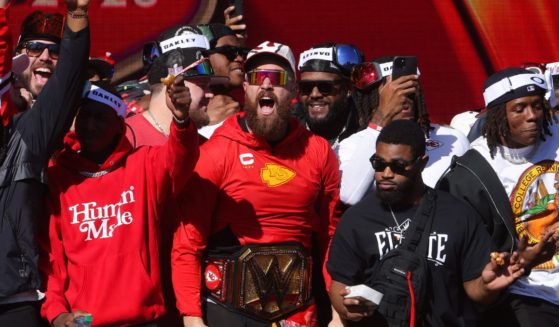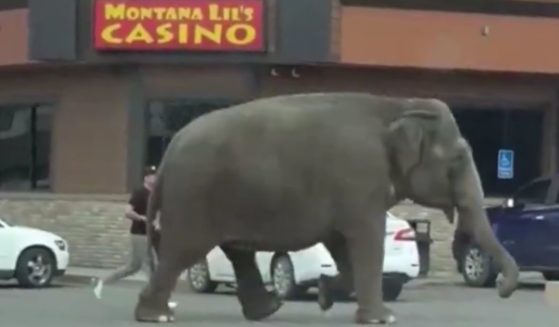Venezuela's Guaido in video calls for military uprising
CARACAS, Venezuela (AP) — Opposition leader Juan Guaidó took a bold step to revive his movement to seize power in Venezuela, taking to the streets Tuesday to call for a military uprising that drew quick support from the Trump administration and fierce resistance from forces loyal to socialist Nicolas Maduro.
The violent street battles that erupted in parts of Caracas were the most serious challenge yet to Maduro’s rule. And while the rebellion seemed to have garnered only limited military support, at least one high-ranking official announced he was breaking with Maduro, in a setback for the embattled president.
In a Tuesday night appearance on national television, Maduro declared that the opposition had attempted to impose an “illegitimate government” with the support of the United States and neighboring Colombia. He said Venezuela had been a victim of “aggression of all kinds.”
Meanwhile, Guaidó sought to keep the momentum going at the end of the day by releasing his own video message in which he pressed Venezuelans to take to the streets again on Wednesday.
The competing quests to solidify a hold on power capped a dramatic day that included a tense moment when several armored vehicles plowed into a group of anti-government demonstrators trying to storm the capital’s air base, hitting at least two protesters.
U.S. National Security Adviser John Bolton said the Trump administration was waiting for three key officials, including Maduro’s defense minister and head of the supreme court, to act on what he said were private pledges to remove Maduro. He did not provide details.
The stunning events began early Tuesday when Guaidó, flanked by a few dozen national guardsmen and some armored crowd-control vehicles, released the three-minute video shot near the Carlota air base.
In a surprise, Leopoldo Lopez, Guaido’s political mentor and the nation’s most-prominent opposition activist, stood alongside him. Detained in 2014 for leading a previous round of anti-government unrest, Lopez said he had been released from house arrest by security forces adhering to an order from Guaidó.
“I want to tell the Venezuelan people: This is the moment to take to the streets and accompany these patriotic soldiers,” Lopez declared.
As the two opposition leaders coordinated actions from a highway overpass, troops loyal to Maduro fired tear gas from inside the adjacent air base.
A crowd that quickly swelled to a few thousand scurried for cover, reappearing later with Guaidó at a plaza a few blocks from the disturbances. A smaller group of masked youths stayed behind on the highway, lobbing rocks and Molotov cocktails toward the air base and setting a government bus on fire.
Amid the mayhem, several armored utility vehicles careened over a berm and drove at full speed into the crowd. Two demonstrators, lying on the ground with their heads and legs bloodied, were rushed away on a motorcycle as the vehicles sped away dodging fireballs thrown by the demonstrators.
“It’s now or never,” said one of the young rebellious soldiers, his face covered in the blue bandanna worn by the few dozen insurgent soldiers.
The head of a medical center near the site of the street battles said doctors were treating 50 people, about half of them with injuries suffered from rubber bullets. At least one person had been shot with live ammunition. Venezuelan human rights group Provea said a 24-year-old man was shot and killed during an anti-government protest in the city of La Victoria.
Later Tuesday, Lopez and his family sought refuge in the Chilean ambassador’s residence in Caracas, where another political ally has been holed up for over a year. They later moved to the Spanish embassy. There were also reports that 25 troops who had been with Guaidó fled to Brazil’s diplomatic mission.
Amid the confusion, Maduro tried to project an image of strength, saying he had spoken to several regional military commanders who reaffirmed their loyalty.
“Nerves of steel!” he said in a message posted on Twitter.
Flanked by top military commanders, Defense Minister Vladimir Padrino López condemned Guaido’s move as a “terrorist” act and “coup attempt” that was bound to fail like past uprisings.
“Those who try to take Miraflores with violence will be met with violence,” he said on national television, referring to the presidential palace where hundreds of government supporters, some of them brandishing firearms, had gathered in response to a call to defend Maduro.
Meanwhile, Foreign Minister Jorge Arreaza said the “right-wing extremists” would not succeed in fracturing the armed forces, which have largely stood with the socialist leader throughout the months of turmoil.
“Since 2002, we’ve seen the same pattern,” Arreaza told The Associated Press. “They call for violence, a coup, and send people into the streets so that there are confrontations and deaths. And then from the blood they try to construct a narrative.”
But in a possible sign that Maduro’s inner circle could be fracturing, the head of Venezuela’s secret police penned a letter breaking ranks with the embattled leader.
Manuel Ricardo Cristopher Figuera, the head of Venezuela’s feared SEBIN intelligence agency, wrote a letter to the Venezuelan people saying that while he has always been loyal to Maduro it is now time to “rebuild the country.”
He lamented that corruption has become so rampant that “many high-ranking public servants practice it like a sport.”
“The hour has arrived for us to look for other ways of doing politics,” he wrote. “To build the homeland our children and grandchildren deserve.”
The letter circulating on social media was confirmed by a senior U.S. official who spoke on condition of anonymity because he was not authorized to divulge details of the case. He said the general’s wife is currently outside the country.
Guaidó said he called for the uprising to restore Venezuela’s constitutional order, broken when Maduro was sworn in earlier this year for a second term following elections boycotted by the opposition and considered illegitimate by dozens of countries.
He said that in the coming hours he would release a list of top commanders supporting the uprising.
“The armed forces have taken the right decision,” said Guaidó. “With the support of the Venezuelan people and the backing of our constitution they are on the right side of history.”
Anti-government demonstrators gathered in several other cities, although there were no reports that Guaidó’s supporters had taken control of any military installations.
As events unfolded, governments from around the world expressed support for Guaidó while reiterating calls to avoid violent confrontation.
Bolton declined to discuss possible actions – military or otherwise – but reiterated that “all options” are on the table as President Donald J. Trump monitors developments “minute by minute.”
He said he was waiting for key power brokers including Padrino, Supreme Court chief justice Maikel Moreno and head of the presidential guard to make good on their commitments to achieve the peaceful transfer of power to Guaidó.
“All agreed that Maduro had to go. They need to be able to act this afternoon, or this evening, to help bring other military forces to the side of the interim president,” Bolton said. “If this effort fails, (Venezuela) will sink into a dictatorship from which there are very few possible alternatives.”
Elsewhere, Spain’s socialist caretaker government urged restraint, while the governments of Cuba and Bolivia reiterated their support for Maduro.
___
Joshua Goodman in Cucuta, Colombia, contributed to this report.
The Western Journal has not reviewed this Associated Press story prior to publication. Therefore, it may contain editorial bias or may in some other way not meet our normal editorial standards. It is provided to our readers as a service from The Western Journal.
Truth and Accuracy
We are committed to truth and accuracy in all of our journalism. Read our editorial standards.

